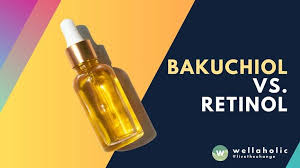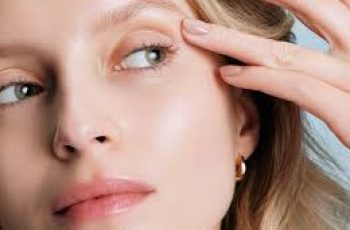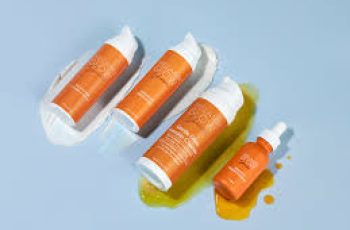
The Science of Bakuchiol in Skincare Products
In recent years, there has been a lot of discussion in the cosmetics and skincare industry about bakuchiol, a plant compound that is a natural alternative to retinol.
Bakuchiol comes from the seeds and leaves of the psoralea corylifolia plant and has been used in traditional Asian medicine for centuries.
This blog post explores the science behind bakuchiol and examines its benefits, potential side effects, hormonal effects, and suitability for different skin types.
To find out what skin type you have, take our quiz by clicking the button below!
What is Bakuchiol?
Bakuchiol is a prenylated phenolic monoterpenoid that is considered a gentle alternative to retinoids.
It gained notoriety because it mimics the skincare benefits of retinol—such as anti-aging, anti-acne, and pigment correction—without the harsh side effects.
Benefits of Bakuchiol
Anti-aging
Bakuchiol stimulates collagen production and supports exfoliation, reducing fine lines and wrinkles. It can improve skin’s elasticity and firmness, making skin look younger.
Bakuchiol is also a powerful antioxidant. It protects the skin from free radical damage caused by UV rays and environmental pollution, which can accelerate the aging process and cause hyperpigmentation. Clinical studies have shown that regular use of bakuchiol can reduce signs of skin aging.
Acne
Bakuchiol has anti-inflammatory and antimicrobial properties that make it an effective treatment for acne. It helps reduce acne breakouts by controlling bacteria and reducing inflammation.
Killing acne-causing microorganisms is an excellent way to prevent acne breakouts. Exfoliating pores can also help control acne.
Pigmentation
Studies have shown that bakuchiol can reduce dark spots and other forms of hyperpigmentation and improve skin tone. Additionally, this ingredient prevents discoloration caused by UV exposure.
Side Effects
Although bakuchiol is generally well tolerated, some people may experience mild irritation, especially when used in high concentrations or combined with other powerful active ingredients.
However, this alternative is less likely to cause skin irritation and dryness than retinol.
Organizations such as the Environmental Working Group consider this ingredient safe and sustainable and have given bakuchiol a rating of “1.”
Bakuchiol and Hormones
The molecular structure of bakuchiol enables it to mimic certain hormone effects, particularly estrogen-like effects.
This makes it a potentially useful ingredient for people whose skin is affected by hormonal changes, such as during menopause.
However, people who are sensitive to hormones should consult a doctor before use.
Bakuchiol vs. Retinol
While bakuchiol and retinol share some functional similarities, their differences in side effects, efficacy, and suitability for different skin types make bakuchiol an attractive alternative to retinol.
Here is an overview of the most important ingredients:
Bakuchiol vs. Retinol Efficacy
Retinol – Speed and Strength: Retinol is known for its fast and intense effects on the skin, making it a top choice for treating visible signs of skin aging and acne.
It binds to retinoid receptors in the skin, speeding up cell turnover, stimulating collagen production, and opening up pores.
These changes are noticeable, but there is a risk of skin irritation, redness, and peeling, especially when first used or in higher concentrations.
Bakuchiol – Gentle but Effective: Bakuchiol, on the other hand, works more slowly and gently.
It also affects skin processes associated with anti-aging and anti-acne effects, providing similar benefits such as: B. Collagen synthesis and exfoliation.
Studies have shown that this ingredient can effectively reduce wrinkles and pigmentation, improve skin elasticity, and do so without the harsh side effects associated with retinol.
Skin Sensitivity and Irritation
Retinol is known to cause redness, peeling, and irritation, especially in higher concentrations or with frequent use.
Bakuchiol has similar benefits for skin cell turnover and collagen production, but without the irritation, making it safe for sensitive skin.
Mechanism of Action
Retinol binds to specific retinoid receptors in the skin, which can cause skin sensitivity and peeling.
This mechanism is effective, but can cause burning, especially in the sun, as it increases photosensitivity.
Although bakuchiol binds differently, it affects similar biological processes and provides similar benefits without the increased photosensitivity.
Uses of Bakuchiol vs. Retinol
Due to its photosensitizing effects, retinol is best used at night, as this increases the risk of sun damage during the day.
Bakuchiol can be used both during the day and at night, as it is less photosensitizing, allowing for more flexibility in use.
What skin types are suitable for Bakuchiol?
Bakuchiol is versatile and suitable for almost all skin types, including dry, sensitive, or acne-prone skin.
Its gentle effects make it a top choice for people who are sensitive to powerful ingredients in skincare products.
To find out which ingredients are right for your skin, take the Baumann Skin Type Test!
Our test can help you tailor your skincare solutions to your individual needs, increasing safety and effectiveness.
To find the best products for your skin, take the test for free today and get $5 off your first order!
The Best Bakuchiol Serum
Bakuchiol serum is an effective addition to your skincare routine. It has the rejuvenating effects of retinol without damaging the skin.
Therefore, it is suitable for all skin types, even sensitive skin. It stimulates collagen production, smooths fine lines, and improves skin firmness.
This herbal active ingredient accelerates cell turnover, reduces pigmentation and improves skin tone.Its antioxidant properties protect against environmental damage and prevent premature skin aging.
Anti-inflammatory properties soothe redness and irritation.
Due to its non-photosensitive properties, bakuchiol serums are suitable for both daytime and nighttime use, making them a great choice for natural and effective skin care.
Here are some of my favorite bakuchiol serums:
Conclusion
Both bakuchiol and retinol have unique benefits that make them valuable in different skin care contexts.
While retinol may be an option for faster, more intense results, bakuchiol offers a gentler, more natural approach with fewer side effects.
Ingredient selection should depend on an individual’s skin type, needs, and sensitivities so that everyone can achieve their skin care goals effectively and safely.
In fact, many products contain both retinol and bakuchiol! Remember: the best skin care ingredient depends on your skin type. Take the quiz to find out what your goals are today!
DQH Knowledge drop: In your 20s, your skin cell turnover decreases. (Cell turnover is a key component in keeping your skin youthful.) You know what else slows down? Your collagen production. Starting in your 20s, collagen decreases by about 1 percent per year. Should you want to prevent fine lines and wrinkles, start by eliminating behaviors that contribute to premature aging. “If it’s bad for you, it’s bad for your skin,” says dermatologist Michel Somenek.
“Cigarette smoking reduces blood flow to the skin and causes premature wrinkling and a dull skin texture. Making the repeated pursed motion to inhale can also cause smoker’s lines. Alcohol and recreational drugs are toxins for the skin that damage its cellular structure and DNA,” Somenek tells us. “The faster you eliminate vices while you are young, the better chance your skin and body have to recuperate.” Also, adopting an anti-aging routine in your 20s is key. After all, the best offense is a good defense. We spoke to Somenek and experts Joshua Ross and Audrey Kunin to find out more.
Keep reading for the best anti-aging products for your 20s, according to skincare professionals.
Sunscreen
“We all know that the sun is the number one cause of skin aging and starting the prevention in your 20s is very important,” Ross says. “The majority of your sun damage won’t start to appear until you’re in your 30s, so don’t wait until you see it surface or you’ll be behind the curve. Stay ahead of it with a good-quality zinc-based sunscreen worn daily.”
Farmacy Green Defense Daily Mineral Sunscreen
An invisible sunscreen with SPF 30, plus botanical extracts meant to protect skin with tons of antioxidants. Bonus: It’s clean and fine to use under makeup.
Bareminerals Complexion Rescue™ Tinted Moisturizer Broad Spectrum SPF 30
Although we recommend you use your SPF and moisturizer separately, we also understand moments when you don’t have time or energy for that extra step. For those times, this bareMinerals moisturizer is a great thing to have on hand.
Vitamin C Serum
“A great introduction to anti-aging is to start with a vitamin C serum in your morning skincare routine,” Ross says. “It’s a powerful antioxidant that will neutralize free radicals and brighten the skin.” He adds that it’s a great way to counteract the effects of the sun’s harmful rays, which, as previously mentioned, are among the biggest causes of premature aging.
Drunk Elephant C-Firma™ Vitamin C Day Serum
The Drunk Elephant C-Firma is a lightweight serum that promises to give skin a glow by combining the brightening powers of vitamin C with ferulic acid, l-ascorbic acid, and vitamin E. The included sodium hyaluronate is meant to replace hydration loss, so you shouldn’t have to deal with any irritation.
Sunday Riley C.E.O. Rapid Flash Brightening Serum
This potent serum is jam-packed with vitamin C (15 percent, to be exact), which means it’s a potential superstar at both brightening skin and dousing it in antioxidants.
Peptides
Using peptides on your skin has many benefits, says Somenek. “The skin barrier is what defends the body against pollution, UV rays, bacteria, and toxins. It can be damaged by several everyday factors. Using topical peptides aids in building a stronger barrier,” he says. “Peptides comprise elastic fibers, which are a type of protein. These fibers help to make skin appear taut and firm. Peptides can also help repair damaged skin, relieve inflammation, and even out skin tone. Some peptides can kill acne-causing bacteria that is common in 20-somethings.”
Kunin agrees, saying, “Peptides are an excellent entry point for supporting collagen.” She recommends looking for face and eye treatments that contain these collagen-boosting powerhouses.
Charlotte Tilbury Magic Eye Rescue Cream
This Charlotte Tilbury super-emollient eye cream has a base of coconut oil and shea butter (read: it’s incredibly hydrating). Botanicals plus peptides are meant to help reduce dark circles and boost collagen, respectively.
This creamy moisturizer serves up potent collagen-boosting peptides and pycnogenol, and antioxidant-rich vitamin C. “Instead of sitting on top of the skin, peptides penetrate the outer layer so they go deep. The ‘signals’ they send tell the cells to produce elastin and collagen, which are needed for youthful-looking skin,” explains Somenek.
At-Home Peel Pads
Remember that skin cell turnover fiasco we talked about earlier? One way to help support it is by exfoliating. “Exfoliation is important to help keep skin fresh and luminous,” Kunin says. She recommends using at-home peel pads as an easy and effective way to exfoliate.
“The goal in your 20s is to fight the slowing pace of cell turnover. It is wise to use products that gently exfoliate, yet still remove oil and other impurities. Products that have Alpha Hydroxy Acids (AHA) or Beta Hydroxy Acids (BHA) are a good choice.”
According to Somenek, you should only exfoliate two to three times a week. “People of all ages are guilty of over-exfoliating and that can be too much of a good thing,” he says.
Dermadoctor Kakadu C Intensive Vitamin C Peel Pad
A few swipes of this Derma Doctor powerful peel pad promise to leave your skin glowing and smooth, thanks to the seven (yes, seven) types of chemical exfoliants, including AHA and BHA. It also contains vitamin C via Kakadu plum extract for added brightening and antioxidant protection.
KEY INGREDIENTS Kakadu plum extract is sourced from the Kakadu plum, a fruit grown in northern Australia. It contains vitamin C, which restores the skin’s natural barrier, increases collagen production, and soothes irritation.
Dr. Dennis Gross Skincare Alpha Beta® Universal Daily Peel Pads
These are the gold standard of peel pads, with a cult following and over 900 five-star reviews on Sephora. They’re easy to use and contain a blend of anti-aging exfoliating acids.
Emollient Night Cream
“In your 20s, you need to start upping the hydration in your skincare routine. You may have been cautious of over-moisturizing because of acne in your teens, but as you enter your 20s, your skin transitions and becomes drier,” Ross says. “I recommend an emollient night cream added into your evening skincare regimen.”
“Twenty-somethings need to make sure that they are not using creams that will clog their pores and cause excess oil production,” says Somenek. Opt for non-comedogenic products.
Cerave Skin Renewing Night Cream
One great choice is the CeraVe Skin Renewing Night Cream, which is a non-comedogenic night cream that leaves skin soft and glowy. It combines the moisturizing powers of ceramides and hyaluronic acid.
RoC Retinol Correxion Max Hydration Creme
“The best night cream ingredients contain retinol, benzoyl peroxide, and/or salicylic acid or hyaluronic acid. The goal is to moisturize, yet remove excess oil,” says Somenek. This Roc Retinol Correxion cream fits the bill as it contains both hyaluronic acid and retinol so it promises to moisturize while also being non-comedogenic.



